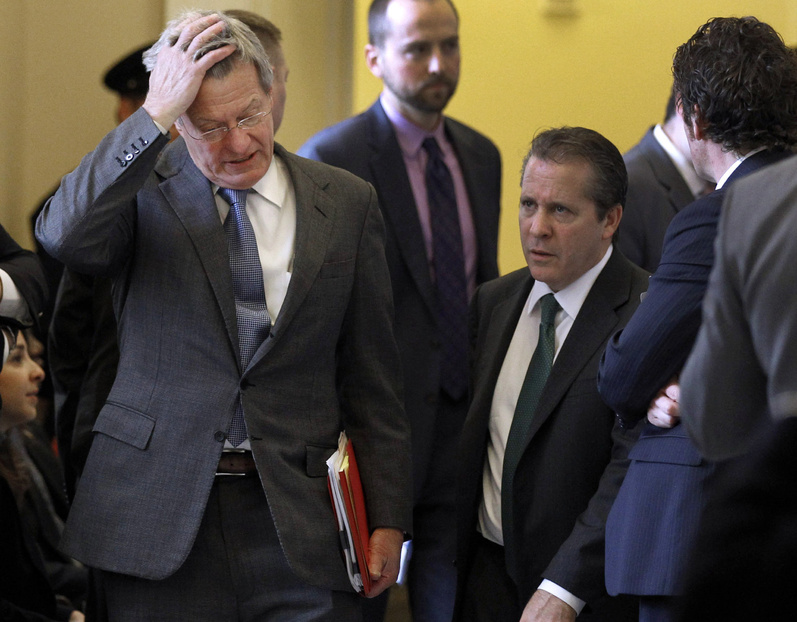If compromise is the art of coming up with a deal that satisfies no one, the framework for a tax-cut fix reached in Washington this week is a resounding success.
But that’s not the only standard by which this plan looks like the right way forward. It provides some certainty for businesses and individual taxpayers, puts money in the hands of people who will spend it, and provides relief for those who have been hurt the worst by this recession.
Members of both parties should swallow their objections and pass a bill built on this framework before they break for the year.
Although this is a compromise, it’s clear that the Republicans didn’t have to move nearly as far as the administration. This deal is based on President Obama’s willingness to give way on a key campaign promise, which was to allow the Bush tax cuts on the wealthiest Americans to expire.
Democrats, who also ran on that promise, are angry with Obama’s retreat and are speaking out against the deal.
But Obama is responding to the results of the last election, in which his party lost the House and most of its majority in the Senate. Elections matter, and the results shape policy.
However, the GOP did not get everything it wanted. The tax cuts would be extended for only two years, not made permanent. And even that came with a trade-off: The cost of extending unemployment benefits would not be offset with other spending cuts elsewhere in the budget as the Republicans had wanted.
In addition, a package of tax-code changes that affect low-income and moderate-income families, which were part of last year’s stimulus package, would be continued.
These include an extension of the earned income tax credit, credits for college students and their families, and a 2 percent cut to the payroll tax, which all give more money to people who will spend it, supporting jobs in communities all over the country.
Saving these programs has been the goal of progressive groups, and their inclusion in this proposal is no small victory for the president.
What this agreement doesn’t do is reduce the long-term debt or make meaningful, permanent reforms of the tax code. Those issues get kicked down the road two years, which puts a return to this debate smack in the middle of a presidential election.
That may not be as bad as it sounds. While putting off the debate has its downside, a campaign would be a much better forum for vigorous public discussion of these issues than this lame-duck session of Congress.
Members should vote “yes” on the compromise and go home for the holidays.
Send questions/comments to the editors.



Success. Please wait for the page to reload. If the page does not reload within 5 seconds, please refresh the page.
Enter your email and password to access comments.
Hi, to comment on stories you must . This profile is in addition to your subscription and website login.
Already have a commenting profile? .
Invalid username/password.
Please check your email to confirm and complete your registration.
Only subscribers are eligible to post comments. Please subscribe or login first for digital access. Here’s why.
Use the form below to reset your password. When you've submitted your account email, we will send an email with a reset code.